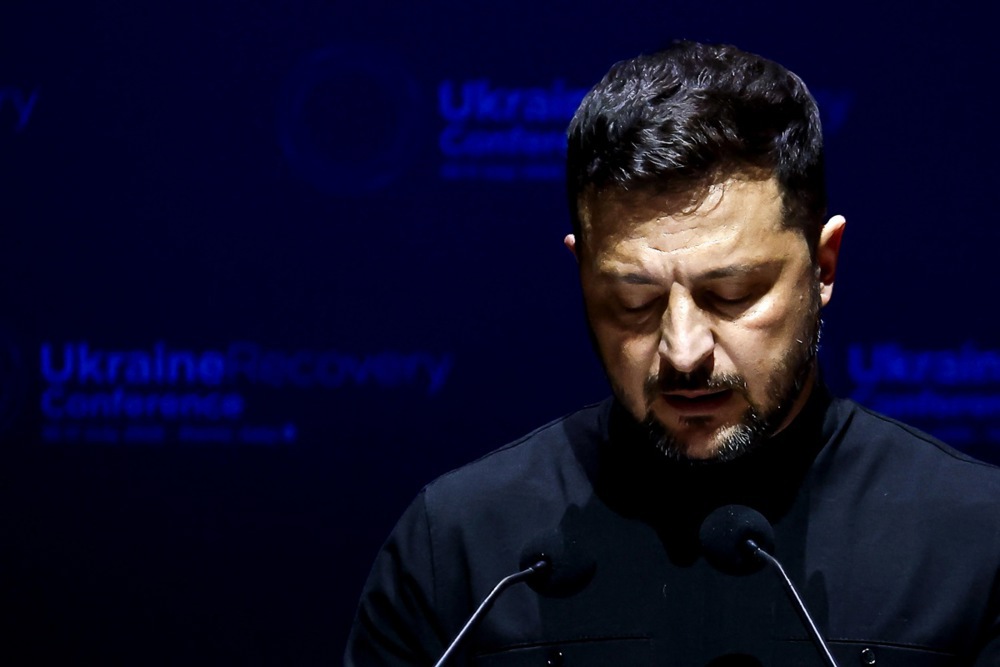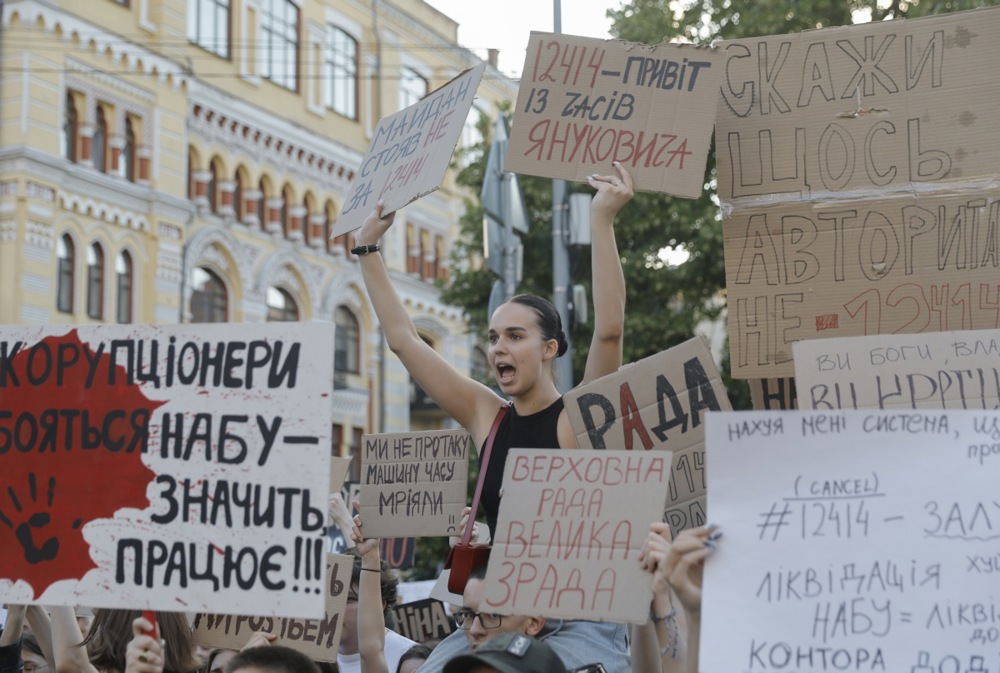Ukraine’s anti-corruption authorities arrested several officials, including an MP with President Volodymyr Zelensky’s Servant of the People party.
They were allegedly part of an organised criminal group that was systematically syphoning-off government money during the procurement of unmanned aerial vehicles and electronic warfare systems in 2024 and 2025, which are critical for the country’s defence capabilities.
On August 5, the National Anti-Corruption Bureau of Ukraine (NABU) announced it had arrested the MP, a former regional governor, leaders of city and district military administrations, a National Guard commander, the owner and the director of a UAV manufacturing company.
The two UAV company members were additionally charged with alleged obstruction of the lawful activities of the Armed Forces of Ukraine.
According to the investigation, they were allegedly paid to employ individuals and provide them with military service deferments, effectively preventing their mobilisation into the Armed Forces.
Members of the group allegedly involved in the contract signing knowingly accepted grossly inflated prices, pocketing up to 30 per cent of the contract value as illicit gains.
This alleged fraudulent scheme was also said to have been employed in the procurement of FPV drones valued at more than €200,000.
The company involved allegedly delivered the products at an exorbitant cost, overcharging by approximately €74,000 and subsequently funnelled a portion of that to the group members as kickbacks.
With the Prosecutor General’s approval, a motion has been lodged with the court for the pre-trial detention of the suspected MP, with bail set at €720,000.
According to Ukrainian media, the MP in question was Oleksii Kuznetsov. He was said to be held in custody for the next 60 days.
Furthermore, motions for pre-trial restraint measures against the other suspects allegedly implicated in this affair have also been submitted to the court.
Kuznetsov was elected to parliament in 2019, representing Luhansk Oblast and served on the parliamentary human rights committee and the temporary commission on tariff policy, the Kyiv Independent reported.
David Arakhamia, head of the Servant of the People faction in parliament, said Kuznetsov would be expelled. “Those [allegedly] guilty of corruption crimes must be punished fairly, regardless of their status or position,” he said.
The governor in question reportedly was a former Luhansk Oblast governor, Serhii Haidai.
Ukraine’s Prime Minister, Yuliia Svyrydenko, convened an emergency Cabinet meeting following the allegations and Zelensky fired Haidai from his post.
COMMENT: The only rational reason for why Ukraine is stripping independence from two anti-corruption bodies is that Zelensky, or someone in his government, is worried about what they might find, writes @AJConstantini. https://t.co/UjgAWnrVBg
— Brussels Signal (@brusselssignal) July 23, 2025
The new alleged corruption scandal came just weeks after Rostyslav Shurma, the former deputy head of Volodymyr Zelensky’s presidential office, had his residence in Germany raided by Bavarian investigators at the request of Ukrainian anti-corruption investigators.
He was part of a group of several managers close to Zelensky now being investigated by NABU in Ukraine.
The raid happened in mid-July and was immediately followed by the highly controversial move by Zelensky against the independence of Ukrainian anti-corruption institutions.
The Ukrainian Government faced intense backlash after Zelensky signed a law limiting the independence of two anti-corruption agencies earlier in July.
The contentious bill granted control of NABU and Specialised Anti-Corruption Prosecutor’s Office (SAPO) to the prosecutor general, who was appointed by the President.
The pushback both at home and abroad was so intense that Zelensky had to retract his plans and signed a new law on July 31 that reportedly guaranteed the independence of anti-corruption authorities.
Anti-corruption has been a key element in moving away from the Russian sphere of influence and NABU and SAPO were founded after the Euromaidan revolution in 2014 as part of Western-backed reforms.
Rostyslav Shurma, the former deputy head of Volodymyr Zelensky’s presidential office, had his residence in Germany raided by Bavarian investigators at the request of Ukrainian anti-corruption investigators. https://t.co/8JdO9hSGzZ
— Brussels Signal (@brusselssignal) August 1, 2025





